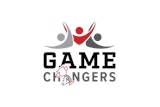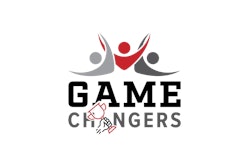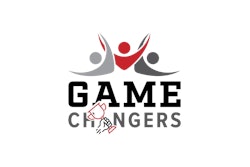
Mitch Abrams credits former college basketball coach Bob Knight for almost single-handedly building his career as “the anger management guy in sports,” an unofficial title he insists he holds by default. “I’m the only person who really will say something out loud about it,” says Abrams, a nationally recognized sport psychologist, expert on sport-related trauma and author of Anger Management in Sport (Human Kinetics, 2010). Given a recent wave of bullying allegations against collegiate coaches, including those that this year alone led to the terminations of Cal swimming coach Teri McKeever and Northwestern baseball coach Jim Foster, as well as a plan of corrective action for Utah gymnastics under coach Tom Farden, AB senior editor Paul Steinbach asked Abrams to say something out loud about the dynamics at play when adult athletes feel emotionally abused by their coaches.
How can coaches know how to identify the line between tough coaching that seeks to inspire athletes to exceed their own perceived performance limits and then abusive behavior? Is that a fine line to walk for coaches today?
I think you just captured the whole thing in a nutshell. It’s not just a fine line, it’s a blurry line. And it’s difficult. I mean, there are some coaches out there who are a**holes, but the bulk of them aren’t. I think that’s part of what gets missed here. First off, there’s not enough coaching education. That’s a big issue. Coaches tend to coach the way they were coached, and the culture has changed. Athletes are more sensitive. Coaches are more sensitive. Sometimes, coaches are just as insensitive as they were all along, but I think that most often when this happens, the coach doesn’t even realize they’re bullying. It’s a different dance when you have someone who’s sadistic, who’s like this draconian drill sergeant idiot. There are some of those guys out there. And women, for that matter. There’s also the issue that different athletes respond to different things. There are some athletes that you’re not going to get the most out of them unless you give them the metaphorical kick in the a**. And where is too far? Sometimes, it’s very hard to tell. From a coaching perspective, we would always prefer to incentivize more than punish, right? You always want to reward good behavior. There’s still this draconian, antiquated theory among a lot of coaches of using physical exertion as a way to punish bad behavior. And they think that that’s good coaching.
Do you have a feel for how many coaches bully their athletes?
I have no statistics on this, because people generally don’t self-identify, “Yes, I’m the bully coach.” I have no idea what the real numbers are, but my guess would be less than 5 percent, probably less than 2 percent, of coaches are actually like that, that they’re really sadistic, like bad people that you’re like, “Why would anyone let their kids around them?” Of course, at the college level, parents have less impact on who that can be. I think for most of them, it’s a coaching education issue. They don’t even realize that what they’re doing, they could do better, if they didn’t use those tactics.
Are there recognizable warning signs for coaches that they are crossing or have, in fact, crossed the line with an individual athlete?
There is no simple answer, because it goes across the spectrum, including the fact that there’s a power differential that exists between coaches and players. And from a trauma point of view, it is not reasonable to expect the victim to call out their perpetrator. Now, that’s the extreme. I think that there are times that coaches think they’re doing a good job, and they’re trying to get the most out of their athletes. Some athletes, by the way, are fragile, and really are not able to handle it. And others are. So, you have this issue where you have some athletes who will be a little bit hysterical and dramatic and complain about things when they’re not going to be as good an athlete as they can if they can’t withstand harsh times. But the other side of it is there are times that athletes can be individually more vulnerable because of their life circumstances — injuries, relationship issues, etc. There are times that a coach might be the straw that breaks the camel’s back, and the athlete was already struggling with life as it is. The coach needs to create an environment where he or she says, “Listen, I’m going to coach you guys hard because I think that’s what’s necessary in order to get you to be the best version of yourself. But just because I’m coaching you hard, I’m not malicious. I don’t want to hurt you. And I want you to be able to talk to me if that’s how you feel.” Bill Parcells to some people was one of the best coaches of all time. Others thought he was a sadistic dictator and would never want to play for him. The trick answer is if you don’t know where the line is, ask the athletes, because that’s the line that we use with harassment legally, right?
You mentioned Bill Parcells. Historically, we have revered coaches who exhibited bullying behavior — Vince Lombardi, Bear Bryant, Herb Brooks. Even Bob Knight, who paid a price for his behavior, emerged with his reputation as a head coach more or less intact.
I think Bob Knight is different than the others because Bob Knight had temper tantrums. He used fear as a motivator, and that’s not a good coaching strategy. He used to a run a motion offense, and the system works. So, a lot of his success was because he was a brilliant innovator. I would argue as successful as he was, he would have been even more successful if he didn’t use fear as a motivator. He had surprisingly few pros that came from his programs. There’s no doubt players were afraid of those other coaches, but they also respected them. There wasn’t this out-of-control volatility that Bobby Knight showed. And if you want athletes to really do amazing things, they have to have the courage to be creative and do things without fear of repercussion. I would argue that he would have been even more successful if he said, “Listen, run my system, but these are the circumstances where I want you to do great things and be creative. And you should do that fearlessly.” All of the best performers in sport and in life understand that if you have too much fear of failure, then you’re not going to take the chances that are necessary for greatness.
What do you say to someone who argues, “Well, today’s athletes are simply entitled, pampered, soft”?
Yes. You’re right. But that’s for good and for bad reasons. Let’s do it a slightly different way. Let’s do it historically, and then we’ll get back to the fragile athlete now. When I wrote my book in 2010, I was talking about this natural progression, and I said narcissism is a natural consequence of chronic winning. If I beat you and I beat you and I beat you, I eventually think I’m better than everyone. And then people start giving me a different set of rules. I don’t have to finish my homework, and now with NIL — oh, my God — let’s give them money and cars, right? So, the thing is that when society starts treating athletes like they have a different set of rules, it’s hard to blame them when they start believing that that’s true. That’s not a new phenomenon with these soft athletes. This has been going on since the ’50s, ’60s, ’70s — since athletics have gotten the prominence and visibility that they have. And what I had cautioned was, if you don’t have that counterbalanced with the parenting, good coaching, good discipline, accountability, sportsmanship, then you run the risk of these athletes turning into a**holes, instead of being great, well-rounded people — which most athletes are, by the way.
Why do you think athletes are feeling more empowered to raise allegations of abuse against coaches today than, say, 50 years ago?
Two reasons. One, the problem with saying all athletes are soft is it’s a sweeping generalization. You want to hear something controversial? Here we go. I think a lot of this has to do with our society deciding that corporal punishment equals abuse. And it’s not true. Certainly, corporal punishment can be abusive, but I think that we have a serious problem in our society, where our young people don’t have enough fear and respect for authority. And I think part of that is we don’t have accountability being taught to children. Now, certainly, not the only way to teach children accountability is by beating the crap out of them. My kids know where the line is. I’ve never hit them. I think the other thing that gave corporal punishment a really bad rap was that a lot of parents were angry when they were disciplining — so they were hitting harder, so it was abusive. But we threw the baby out with the bathwater, so that parents almost have no way to punish their child, except to say, please don’t do it again. And so children are more spoiled and more entitled than they used to be. I think the other piece to this is that we have increased visibility and discussion about bullying, which is a good thing. So, we have a couple of factors — where people used to be bullied and no one ever talked about it, so no one ever stopped the bullying. We’ve improved that. There is greater visibility with these HIPAA laws — you know, harassment, intimidation, bullying and all the rest of that. That’s a good thing. But there’s also the risk that people are calling things bullying that are not bullying. I think your first question was brilliant, because I’ve seen it in both directions. I’ve been involved in cases where people were accused of bullying, and I was like, “That doesn’t feel like bullying to me.” And there have been other cases where people are like, “This is what we do,” and I’m like, “Everybody’s okay with this?” And it’s crazy-making sometimes, because I’m not the moral police. I think that one of the things that made Bill Parcells great is that he was a big believer, even if he didn’t get it right all the time, that you have to coach each athlete the way they need to be coached. I do think that message is very important — that you can’t use a one-size-fits all approach. And the more you are sensitive to what your athlete’s individual needs are, the more you’re also going to be sensitive and receptive to what their needs and concerns are. I don’t know that all coaches are willing to invest enough to do that, but I don’t think most coaches are deliberately malicious.
You mentioned, when speaking for society at large, that there isn’t the fear of authority that there once was, and yet you said Bob Knight wasn’t as successful as he might have been had he not coached through fear. Can you clarify?
Everything exists on a continuum, right? There’s something called the Yerkes Dodson Law, which says there’s a curvilinear relationship between arousal and performance. What does that mean? And it doesn’t matter if it’s fear or anger, any emotional state. We know that as arousal goes up, performance goes up, too — until a certain point. We want them up to that line without going over it, because at moderate levels using anger or fear — because physiologically, they’re almost identical — they’re stronger, they’re faster, they have more stamina, they have a decreased perception of pain. That helps performance. But once you get over that cliff, then fine motor coordination goes out the window. Problem-solving, decision-making, vision, this idea of being able to synthesize data and make quick decisions, all that goes when you have very high levels of emotion. So, the problem with Bobby Knight is he was an extremist. If he used some fear as part of his motivation, it wouldn’t be as big of an issue. In fact, what I often talk about is that I want you to be able to adjust the flame to the right amount, so that you’re going to use that fire in your belly for success, to not make mental mistakes. But I appreciate you asking the question, because it’s an important clarification. I’m not saying all fear is bad, anger is bad. I’m saying that we have to have it at the right level so that it doesn’t interfere.
This year alone, the University of Utah is implementing five measures to address allegations of emotional abuse inflicted by the school’s head gymnastics coach. Cal and Northwestern terminated head coaches following investigations into alleged bullying. Do you have any recommendations as to how a school or any sports organization should know what the best remedy is? Is it intervention? Is it termination?
Excellent question, and I have to warn you that my answer is going to sound self-serving, okay? The answer is you need to have someone who’s an expert in violence and abuse and athletes and sports to be involved in the process. What’s the intervention that people usually do? They get rid of this guy. If you want to fix these problems, you have to figure out what the person’s problems are that contribute to the behavior and try to treat them, because the truth is very, very few of these folks are psychopaths who are unfixable. That’s the problem. Most of the people who are doing the prevention work are do-gooder advocates. They don’t understand how frustrating it is as a coach that your bank account is based off of what other people do. Your success is based off wins and losses. You help these athletes, coach these athletes, train them, teach them to perform, which is going to help the team and it’s going to help your bottom line. And when that doesn’t happen, it is really frustrating. I don’t blame you for being frustrated. How are you going to manage your frustration so that you’re best able to coach? I don’t have a problem with you being frustrated. That’s not the issue. How is that going to help you? What anger management skills do you have to recognize that “I’m too hot to be effective?” Is that a time that you say, “You know what? We’re cutting practice short today”? Is that a time that you have one of your assistants take over drills? What are the different things that you can do that are going to help you manage your emotions? I have a lot of athletes who are sent to me because they’re seen as violent and they have problems, but the coach is on the sidelines acting like an idiot. Coaches have the added burden — and, honestly, honor — to be role models. Who’s teaching them to control their emotions to be effective? No one. We need more coaching education. But we don’t just throw people in the trash heap.
Some of what you’ve described is a hair-trigger reaction out of frustration, but when I think of bullying, it might be a cross country coach who repeatedly comments on the weight of one of his female athletes. To me, that seems far more insidious than an emotional outburst in the moment.
Excellent point. And, by the way, the prognosis is a lot worse for that coach who’s making those comments. The issue is that when someone makes one hair-trigger explosion, it has to be really egregious before people even hear of it. That sounds like an emotional overreaction versus a complete campaign of denigration. It’s when people have a pattern of this that it’s a different dance. Then it begs the question, “Why does anybody allow this to happen?” Follow the dollar. This is about wins and losses. This is not about morality. That’s the problem. The problem is that regardless of what universities may say, they will tolerate bad behavior if it translates to more wins, more money, more boosters, more fannies in the seats. They will tolerate things that they should not tolerate. There are some bad people out there — there’s no doubt about it. You give me 1,000 psychologists, I’m going to show you some bad people, right? Doesn’t mean most of them are. Why would we assume — with sports is a metaphor, a microcosm of our society — that we won’t get any bad eggs in sports? Of course we will. The question is, are we willing to sell the souls of our athletes in exchange for wins and losses?
Speaking of dollars and cents, the October issue of Athletic Business examined a case in which twin sisters sued the University of San Francisco, with one receiving a jury award of $750,000 in July because of “intentional infliction of emotional distress” by the head women’s basketball coach. Do you think that such cases have any impact on how other coaches approach their positions of authority? Do they cause colleges to rethink their hiring processes to more thoroughly vet coaches’ character?
Man, I should have met you 15 years ago. I think the answer is still “Not yet.” I predicted that I was going to have so much business, because everyone was going to realize, “We need better prevention, because that’s the only way we’re going to prevent Title IX suits.” And I said, “There’s no way that schools are going to be able to afford this and survive these Title IX suits. Small schools are going to be bankrupted by the settlements.” It hasn’t happened yet. Until these things become bigger, and the numbers become bigger, you’re not going to see the change. Is it happening? Probably. Is it as much as it should be? Nowhere near yet, but we’re getting there.





































